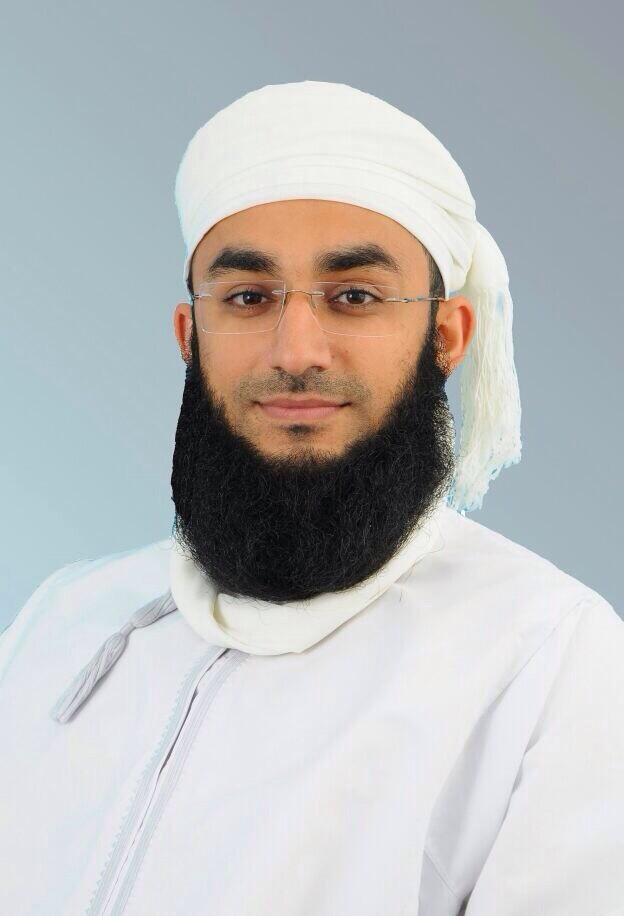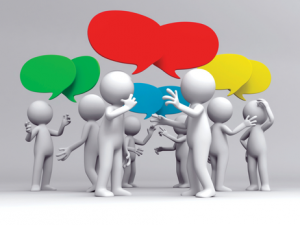I once wondered, how much of what we do and think is based on perceptions rather than reality? In fact, how much of what we have “learned” from parents and society is based on knowledge or solid experience? Those questions bothered me and got me thinking? What if we are deceived by our perceptions? What if reality is different from the world we perceive? The ever optimistic soul in me answered: “It would be a wonderful reality. If our perceptions were able to make our reality so beautiful, the knowledge will make our lives ever more enjoyable and much more easier.
I started looking around for things that would be greatly affected by wrong perceptions or “deceptive perceptions” as I would like to call it. As a parent, I always thought and questioned my ways of interacting with my children and whether I am right or wrong in my approach and weather I am helping them build a strong personality or am I doing the opposite!
As my eldest sons Ayub & Almukhtar are approaching their adolescence, I needed to learn how best to deal with adolescents or teenagers. It is an age that fills most parents with horror and fear (and I must say) full of exaggerations. So I have set myself on a journey to learn and my search eventually landed me on a wonderful book titled: “Brainstorm, the power and purpose of the teenage brain” by Dr. Daniel J Siegel, a clinical professor of psychiatry.
I was immediately attracted to the book and as soon as I started reading, I could not stop. The book takes you into a unique journey into the brain of adolescents. He unveils scientific explanations of why adolescents behave the way they do and how should a parent respond to this new child who is growing into adulthood.
One of the most powerful myths surrounding adolescence is that raging hormones cause teenagers to go mad or lose their mind. This is what a lot of people believe. This is our perception of what is happening in an adolescent’s mind. We tend to blame it all on the hormonal changes and excuse ourselves from seriously dealing with some situations our children go through. We find excuses of our failures in responding positively by blaming the hormonal changes in the young teens.
Another myth is that this time is a time of immaturity and teens just need to grow up. This negative perception of teenage years or adolescence also leads adults to belittle their children’s behavior and maybe even be harshly critical of their unorthodox thinking and attitudes leading to grounding them or disciplining them for challenging authority or just for not fully adhering to the long taught principles by their parents since their early childhood.
For some parents, this period is frightening and they keep praying to Allah that this period “passes safely”. This is not right! Adolescents do not just need to survive this period. To the contrary, they can thrive because of this important period of their lives.
These misconceptions and perceptions lead many parents to believe that this period of life is one that would pass and that adolescents will grow out of it to become “Normal” again. The image of a teenager in adult’s minds is distorted. It is one that is depicting a rebellious, immature, irresponsible, undisciplined being. Unfortunately, what others believe about us can shape how we see ourselves and how we behave. Hence, adolescents tend to behave and act the way people perceive them.
This perception is particularly dangerous and in total contradiction with our Islamic teachings. Allah Almighty has made this stage of life (that is adolescence) a dividing period between childhood when people are not accountable for their actions, and adulthood when people are held accountable for every action and speech. It is at this age between 13-15 when boy becomes man and girl becomes woman. If they are accountable in the eyes of Allah, they should be capable and responsible. Otherwise, if they aren’t, it would not be fair to hold them accountable. The history of our beloved prophet Mohammad –peace and blessings be upon him- tells us how he respected teenagers and youth and responded to their needs and followed their opinions even in the most critical of times such as the time of war. Prior to the Battle of Uhud, The Prophet peace and blessings be upon him consulted his people of whether to meet the invading army at the outskirts of Madina or shall they stay within Madina and fight closer to home. The overwhelming majority were youth and adolescents who preferred to fight away from home in show of strength and might. That was not his preferred option but went with it regardless as it was the will of the majority though tactically was not the best. Another such story of his belief of adolescent’s capabilities is when he appointed Usama bin Zaid as a General of the Muslim army at the age of 17! These examples show how Islam looks at this golden age. It’s an age where people can give more when allowed. It’s an age that has to be respected and allowed to flourish.
Here is a lesson we all should learn from: “Treat people as if they were what they ought to be and you help them become what they are capable of being”. We need to treat adolescents with a level of respect and dignity in preparation of what the world is expecting of them. We need to do so to make them feel valuable and appreciated and accounted for and not to make them feel is if they are excess baggage.
Adolescence is not a time of immaturity or being crazy, it’s an essential time of intensive of emotional intensity, social engagement, and creativity. All of these are what we all ought to be and we are capable of and what we need as humans. But our “deceptive perceptions” lead us to look at those attributes negatively and respond to them negatively. It lead us to oppose them, to inhibit its growth and demand its immediate stop. We look at emotional intensity as moodiness, we look at their social engagements as threats to family bonds in favour of undeserving friends. And we look at creativity as rebellion to norms and culture.
Science has shown us that fascinating changes in the human brain during adolescence that gives period between the age of 12-24 its uniqueness with some astonishing enhanced capabilities should adults harness its beauty and allow their teenagers to reach their full potential through wise guidance and close friendship.
The changes in the brain that help support the unique emergence of the adolescent mind can create qualities in us that help not only during our adolescent years, if used wisely, but also as we enter adulthood and live fully as an adult.
In the next article, we shall go into details of the adolescent’s brain to further understand it and help us live with our teenagers a much more harmonious life.
A final lesson is: “Look to adolescents the way you look to the moon. In all its phases, it is the bright side always puts a smile to your face with no complaint. Regardless of how tiny it is; it is still beautiful. Do not expect it to always be full and bright. Even the moon has a dark side, yet it still lights your darkest nights. Love every part of your adolescent child and he will grow to be the full moon you always prayed for”.




